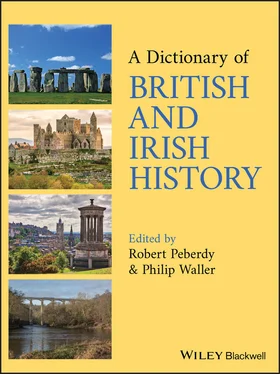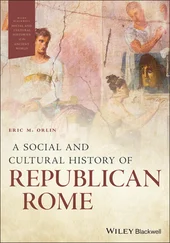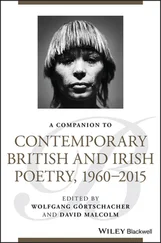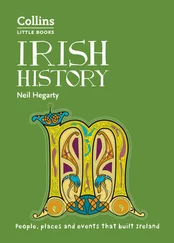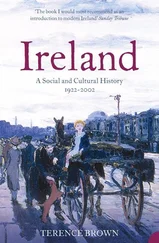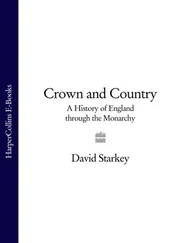(b. c .1077; d. 23 April 1124 at Stirling, C Scotland, aged about 48). King of Scots (Scotland) 1107–24.
The fifth son of MALCOLM III and MARGARET (both d. 1093), Alexander succeeded his brother EDGAR (8 Jan. 1107). By 1113, he ceded subordinate rule of S Scotland to his younger brother ( see DAVID I). Alexander championed autonomy for the Scottish Church (against claims from archbishops of YORK, England): in 1109 his new bishop of ST ANDREWS, Turgot (d. 1115), probably withheld obedience when consecrated by the archbishop. Alexander also brought Augustinian canons from England to SCONE ( c .1115). Succeeded by David I. See also MAC MALCOLM RULERS; RELIGIOUS ORDERS.
ALEXANDER II
(b. 24 Aug. 1198 at Haddington, Lothian, SE Scotland; d. 8 July 1249 at Kerrera, Argyll, W Scotland, aged 50). King of Scots (Scotland) 1214–49. Alexander succeeded WILLIAM I (father) aged 16 (4 Dec. 1214) and joined the rebellion against King JOHN of England, seeking to regain northern English counties ( see DAVID I). In Aug. 1216, he led an army to Dover, SE England, where he did homage to Prince Louis of France for the counties, agreeing they would remain within England. But Alexander’s assertion of authority over the territories in spring 1217 (following John’s death in Oct. 1216) caused the papal legate in England to place Alexander and leading subjects under an interdict. On 1 Dec. he surrendered CARLISLE in return for absolution, and soon afterwards did homage to HENRY III for other English lands. In 1221 Alexander married Henry's sister Joan.
Alexander exerted authority within Scotland by suppressing rebellions in MORAY, NE Scotland (1228–30), and GALLOWAY, SW Scotland (1235). In 1237 he renounced claims to N England (treaty of YORK). Following another treaty with England (1244), Alexander sought to acquire the WESTERN ISLES. He died while expelling Ewen, son of Duncan, agent of King Haakon IV of Norway. Succeeded by ALEXANDER III. See also MAC MALCOLM RULERS; ENGLAND, FRENCH INVASION (1216–17).
ALEXANDER III
(b. 4 Sept. 1241 at Roxburgh, SE Scotland; d. 8 March 1286 near Kinghorn, Fife, E Scotland, aged 44). King of Scots (Scotland) 1249–86. Alexander succeeded ALEXANDER II (father) aged 7 (8 July 1249). In 1251 he married Margaret, daughter of King HENRY III of England. During his minority, until 1260, rival factions (particularly the COMYN family and Alan Durward) periodically replaced each other in royal offices. Henry III also intervened.
Alexander acquired suzerainty of the WESTERN ISLES and Isle of MAN from Norway in 1266 ( see LARGS, BATTLE OF; PERTH, TREATY OF). Thereafter his reign was peaceful (including good relations with England), and probably highly successful. Alexander died after falling from his horse. His children were already dead; he was succeeded by his grand‐daughter, MARGARET, ‘THE MAID OF NORWAY'. See also MAC MALCOLM RULERS.
ALFRED
(b. 848 or 849 at Wantage, Wessex; d. 26 Oct. 899 in Wessex, aged about 50). The fourth son of King ÆTHELWULF to rule WESSEX (S England), Alfred succeeded his brother Æthelred as king in April 871. VIKINGS were attempting to overrun Wessex (one of only three remaining Anglo‐Saxon kingdoms). In 878 much of Wessex capitulated; Alfred fled into hiding at Athelney (Somerset). Soon afterwards, he defeated a Viking army at EDINGTON (Wiltshire) and made terms with their leader, Guthrum (treaty of Wedmore). He constructed BURHS (fortresses) around Wessex to increase its security. By 883, Alfred was overking of (western) MERCIA, and in 886 he captured LONDON and the Thames Valley. He successfully countered further Viking attacks (892–6).
Alfred recruited scholars from Francia, Mercia and Wales to help raise standards of LITERACY and Christian knowledge among the Wessex clergy and nobles ( see ASSER). He himself translated several books from Latin into Old English, and commissioned the ANGLO‐SAXON CHRONICLE . He adopted the title ‘king of the Anglo‐Saxons'. The legend of Alfred, at Athelney, allowing cakes to burn while he pondered his future dates from the 10th century. See also KINGSHIP, ANGLO‐SAXON; ANGLO‐SAXONS.
ALIEN ACTLegislation passed by the English Parliament in Feb. 1705 in response to anti‐English Acts of the Scottish Parliament, especially the Act of SECURITY. It required Scotland to begin negotiations for union by 25 Dec. 1705 or accept the HANOVERIAN SUCCESSION. If ignored, punitive measures would follow (including the treatment of Scots coming to England as aliens). It stirred anti‐English feeling in Scotland (see WORCESTER AFFAIR) but succeeded in its purpose. See also UNION OF ENGLAND AND SCOTLAND. ALIEN PRIORIES, ENGLAND AND WALES
Religious houses, generally small (some very small, with two or three monks), which were founded mainly in the late 11th and 12th centuries following the NORMAN CONQUEST. Perhaps totalling about 100, they were controlled and often staffed from overseas monasteries, many in NORMANDY.
During conflict with France, the king seized the priories’ estates to obtain their revenues (1295–1303, 1337–60, 1369–99). Several larger houses obtained independence (so‐called ‘denization’), but many of the smaller ones were confiscated and suppressed by 1414. Their estates were used to endow new institutions such as colleges in OXFORD and CAMBRIDGE. See also MONASTICISM, MEDIEVAL ENGLAND/WALES; EDWARD I; HUNDRED YEARS WAR.
ALLECTUS(d. 296 in S Britain). Of unknown origin, Allectus was probably the chief finance minister of the usurper CARAUSIUS, whom he assassinated in 293, thereby replacing him as ruler of ROMAN BRITAIN. Allectus held power for three years (293–6), until he was defeated and killed by Asclepiodotus, praetorian prefect of Emperor Constantius I, at an unknown site in S Britain (perhaps in modern Hampshire). ALLENBY, EDMUND(b. 23 April 1861 at Brackenhurst Hall, Nottinghamshire, England; d. 14 May 1936 at London, England, aged 75). A soldier from 1881, Allenby held commands in the (Second) BOER WAR (1899–1902) and WORLD WAR I (from 1914). As commander of the Egyptian Expeditionary Force from June 1917, he led campaigns against the Ottoman Turks in PALESTINE. The Third Battle of Gaza (Oct.–Dec.) resulted in the capture of Jerusalem, which Allenby entered dramatically on 11 Dec. He commanded a final offensive northwards in Sept.–Oct. 1918, which left him in charge of an extensive area. Allenby served as special high commissioner to EGYPT (1919–25), when he oversaw its recognition as a sovereign state. He was created Viscount Allenby in 1919. ALLIANCE PARTY
A political party in NORTHERN IRELAND, founded on 21 April 1970. Originating in the CIVIL RIGHTS MOVEMENT, it sought to be non‐sectarian, centrist and liberal. It drew support mainly from urban middle‐class Unionists (initially former supporters of Terence O'NEILL) and nationalists (many formerly supporters of the Northern Ireland Labour Party).
Alliance joined the power‐sharing Executive of 1974. It supported the BELFAST AGREEMENT (1998), and was usually the fifth largest party in the subsequent ASSEMBLY. From 2010, it participated in the EXECUTIVE, but became critical of the power‐sharing system, claiming that ‘horse trading’ between the major sectarian parties deepened sectarian divisions. It left the Executive for opposition in 2016.
AMBROSIUS AURELIANUS(fl. in mid 5th century in Britain). A British military leader, from a Roman background. According to GILDAS, he roused defeated Britons (in W or SW Britain) to challenge rebellious ‘Saxons' (possibly in 440s). The Britons were successful, though a long period of indecisive conflict followed, lasting until the battle of MOUNT BADON. See POST‐ROMAN BRITAIN; VORTIGERN. AMERICAN CIVIL WAR AND GREAT BRITAIN
Читать дальше
